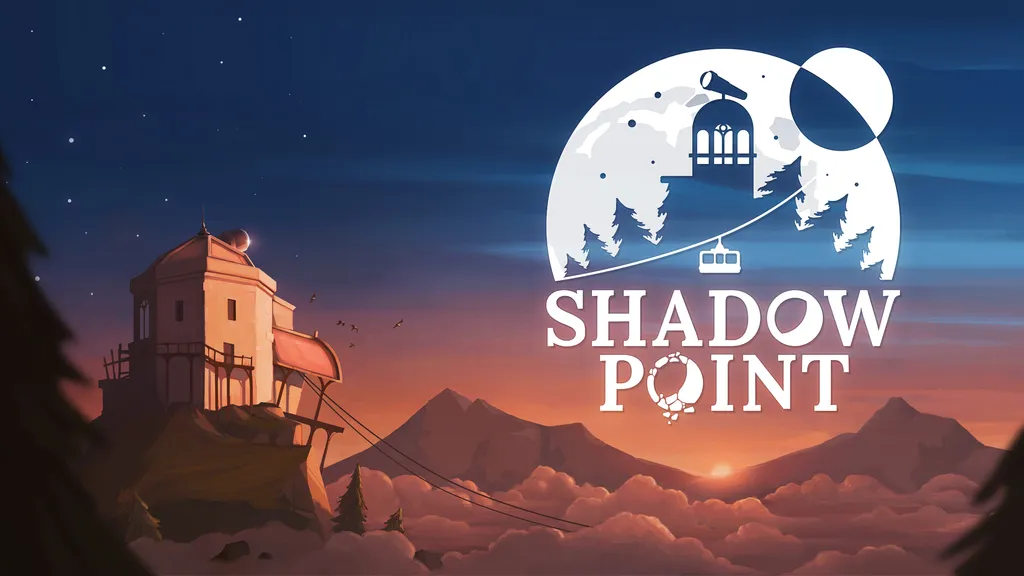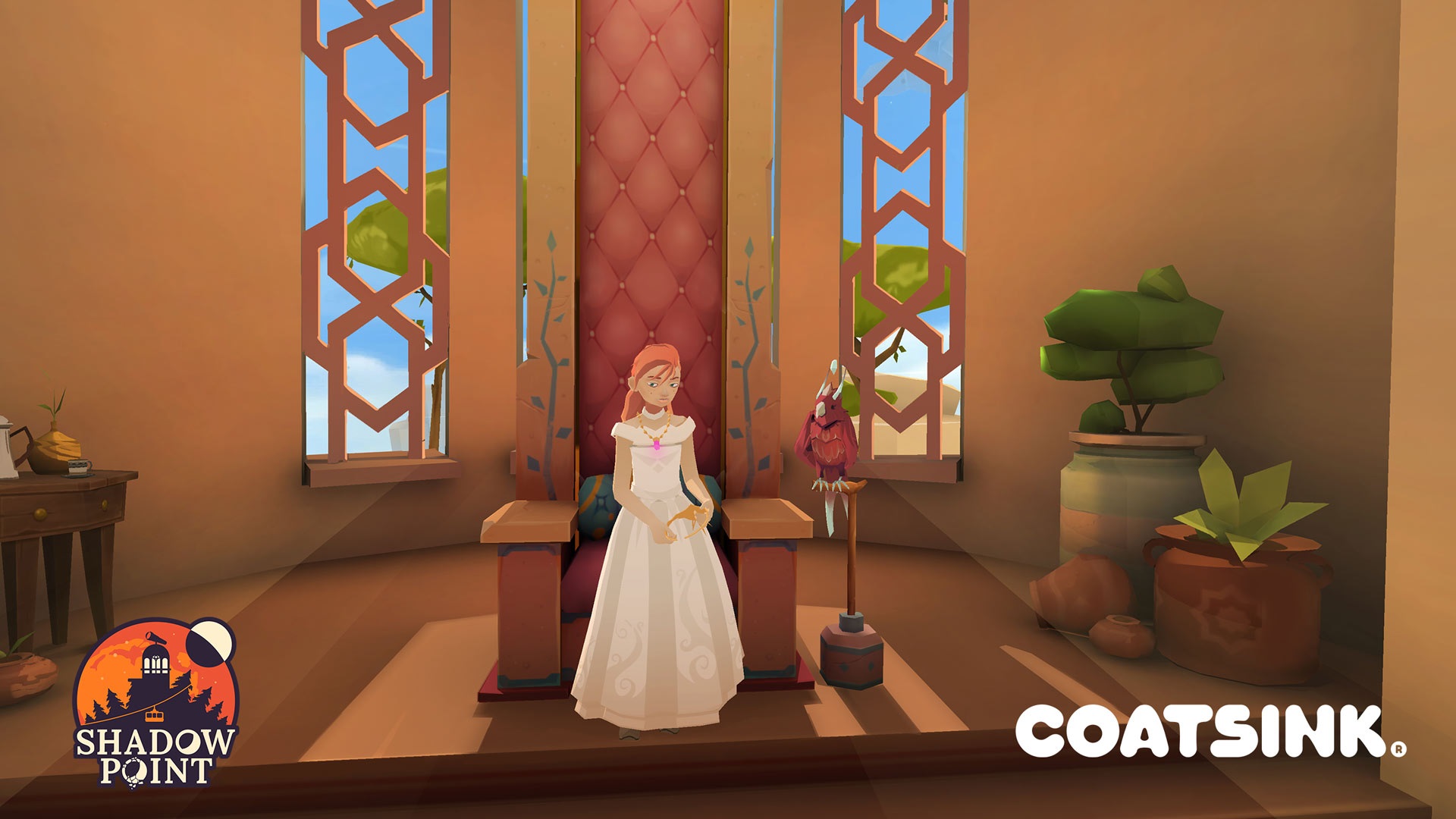Patrick Stewart makes everything better. Star Trek, X-Men, Twitter, you name it. Well, okay, almost everything. As it turns out, he’s the weakest element of the latest entertaining puzzler from Esper developer, Coatsink.
Stewart is a third wheel in an otherwise promising narrative here. In Shadow Point, you go in search of a missing girl, lost somewhere inside a mountain-top observatory. You’re soon to join her, discovering portals to another world hidden within the facility. But while the girl, Lorna McCabe, can’t seem to leave, you travel freely back and forth, with significant time lapses between your visits.
Exactly why Stewart becomes involved with the narrative is something of a mystery. He provides a little exposition between trips to the other world, but his presence muddies the story’s cohesion. Why assign such star talent to such a minor role? I spent a good portion of the story wondering if he was destined to play a bigger part until he fully disappears in the final act.
Disappointing though it may be, there is intrigue to Shadow Point’s twisting narrative. It carries an unmistakable hint of Doctor Who to it all, reinforced by Lorna’s striking resemblance to Karen Gillan’s Amelia Pond. Combined with a gentle soundtrack of violins and acoustic guitars as well as a brash visual style, the game sees Coatsink at its most assured from a presentation viewpoint.
The same is true of the game’s many puzzles, which often spark inventive thinking if occasionally dipping into tritely frustrating. Shadow Point’s core hook is to, well, cast shadows. Outlines appear across the world, often requiring you to hold up a certain object in a certain position to match them. This can sometimes be a little more finicky than you’d like but it’s an effective showcase of spacial puzzling in VR.
Crucially, each of Shadow Point’s eight main worlds introduces an engaging new hook. Eventually, you’ll find puzzles in which you can change an object’s shape using an eyeglass, or trials that don’t let you carry certain items into certain rooms. Some of these ideas are technically fascinating; one sees you seamlessly switch between two variations of the same environment by pulling a portal over your head. Though the game can stutter trying to process this on Quest, it often feels like genuine magic. You get the same chills from the way the game’s doorways between dimensions slowly unfold and instantly let you step through into the other world. It’s a hugely impressive feat.
Easily the game’s best idea is a mirror-world level in which you have to trade items with yourself through a reflective portal. It has a sort of collaborate joy akin to Transpose, even though you’re actually just teaming up with yourself. These moments have a brilliant flow, allowing you to visualize a solution in your mind and then methodically work through it step-by-step.
Less enjoyable are the gravity-based trials, of which there are a few more than I cared for. It’s incredibly difficult to grasp the basic rules of these challenges, leaving your brain unsure of how anything works throughout. More often than not I stumbled upon an answer through trial and error rather than actually working it out.
That said, the good outweighs the bad here, and Shadow Point’s 3 to 4 hour runtime is just short enough for the game not to outstay its welcome.
Despite squandering its starring talent, Shadow Point is another solid entry into Coatsink’s catalog of hopelessly charming VR productions. It’s got just enough of the right sort of puzzle-solving to overshadow (pun intended) the late game’s more exhausting trials and its sweeping score and art direction make it a joy to spend time in. As far as VR brain teasers go, it’s an easy recommendation.
Shadow Point is available now on Oculus Rift and Quest for $19.99 with cross-buy support. Check out these official review guidelines to find out more about our process.



























